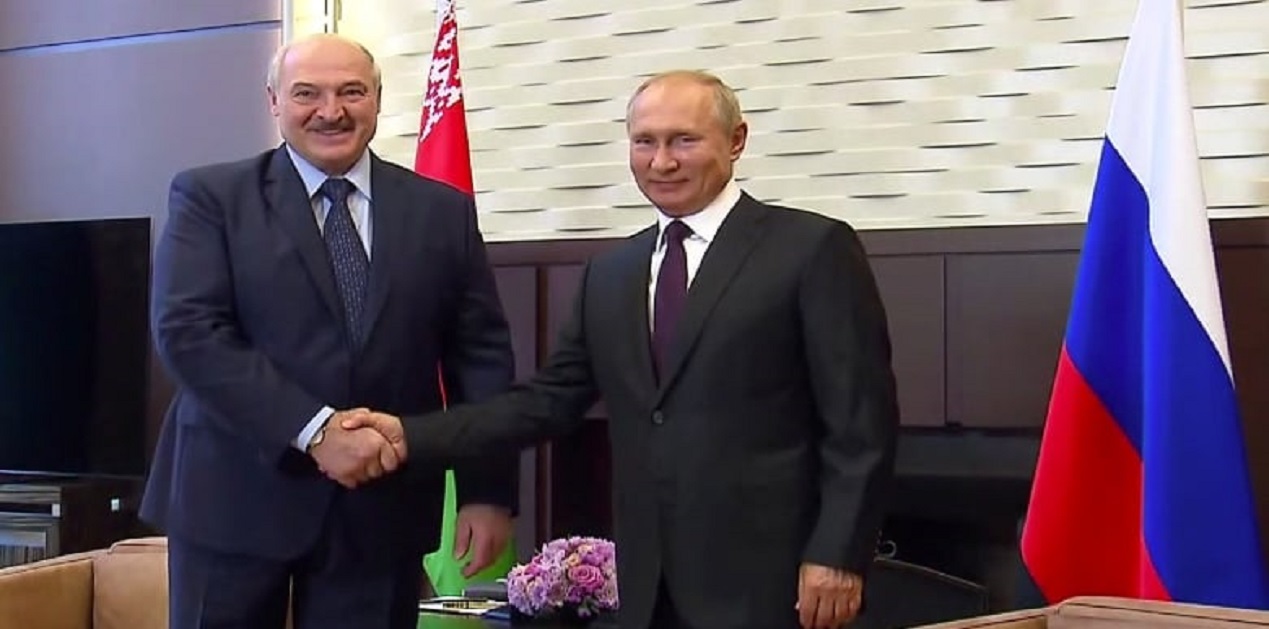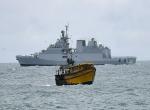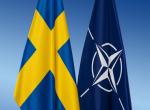Introduction
Belarus is a European nation with a population of 10million and runs a 1000km long southern border with Ukraine. The political character of the government is a unitary presidential constitutional republic with capital at Minsk. Ethnically, a majority of 88 percent population is Belarusian and a minor 8 percent Russian, 3 percent Poles and 1 percent Ukrainian. This is the general composition of the nation in study. It is a landlocked nation.[1]
Belarus has emerged as a key supporter in Putin’s Special Military Operation against Ukraine. It has acted as a springboard for Russia as the latter has deployed tens of thousands of Russian troops on their land. Their closeness can be witnessed through the routine open joint military exercises between them along with the establishment of new training facility of ground force training center at Nizhny Novgorod, Russia, a naval center in Kalingrad, Russia and an Air Force and Air Defence center in Grodno, Belarus.[2]
However, this status of Belarus can be largely attributed to its President Lukashenka. There has been a recent international isolation of Belarus following a ruthless crackdown by its government against the wave of pro-democracy protests. This was following the rigged August 2020 presidential election. Its pariah status has benefited Russia by pressing the leader of Belarus to publicly align himself with Putin’s anti-western stance. Minsk has turned into a dependable ally in the ongoing Kremlin campaign against Ukraine and the West. It could be viewed by the western powers as a sort of soft annexation of Belarus. The western commentators also view it as a lost cause precisely because of its current situation of having no better alternative but to do Moscow’s bidding.
The Russian leadership most likely sets the geopolitical agenda for Belarus today. During the Soviet era most of the Eastern Europe region was part of the USSR and post disintegration in 1991 the close connection between the two continued in some way or the other. Another factor at play may also be the close relationship between both its leaders i.e. Putin and Lukashenka. After Putin came to power in 2000, his desire for integration of post-Soviet states has been on the rise. As of now, the Russian military presence in Belarus includes 30,000 troops, short range ballistic missiles, Special Forces and anti aircraft batteries[3]. Therefore, it is quite evident that Belarus provides Russian forces a strategic advantage by positioning themselves along Ukrainian border which give them the inherent ability and flexibility to encircle and attack from North, East and South.
Historical Antecedents
Belarus politically has been a one-party state, however, the August 2020 pro-democracy protests had led to thousands flooding Minsk (capital city) alone as the legitimacy of the present government came under question. The brutality of these reprisals shows that Belarus is in a weak position to bargain and Russia has a strong leverage over it. It can also be seen that it is the political survival of the current leader that has led to brutal crackdown on the dissenters. This has weakened the sovereign position of Belarus. One of the costs of Putin’s aid is Belarus becoming a platform for Russian military.
Earlier, following the Crimean operation in 2014 by Russia, Lukashenka had stated categorically that he would not allow Belarusian territory to be used to attack a third party. Lukashenka had claimed to share a warm and cordial relationship with pro-western leadership in Ukraine. He had dismissed Putin’s idea of Belarus being a part of so-called Russian world and resisted Kremlin’s efforts to build a new Russian airbase in Belarus. During the Zapad 2017 Joint military exercise with Russia, Belarus bent over backwards to reassure its European neighbours that the drill is not a pretext for aggression. And Minsk was not interested in sacrificing Belarusian sovereignty nor was there any substantial gain to be expected from a military stand-off with the West. It was quite evident that in case of a conflict with the West, it could occupy a frontline position.
Russia’s Boris Yelstin, Ukraine’s Leonid Kravchuk and Belarusian leader Stanislav Shushkevich had signed the Belavezh Accord in December 1991 formally ending Soviet Union but today, after 30 years of the pact, Putin has solidified Moscow’s grip over Belarus and has carried out military operations against Ukraine.
Russia has been Belarus’s largest and most important economic and political partner. Both have been members of various international organisations like Commonwealth of Independent States (CIS), Eurasia Custom Union, Collective Security Treaty Organisation (CSTO) and the UN. Historically, post disintegration of USSR in 1991, the newly formed Russian Republic tried to maintain control over post-soviet space by creating regional organisation like CIS.
At the same time, Russia was trying to stabilise its broken economy and ties with the West which to an extent overshadowed its involvement in the near abroad state like Belarus. The NATO expansion was a red alert for Russia, as on the one hand it had disintegrated from the large geopolitical bloc it had once controlled and on the other hand West was trying to isolate it from European environment by picking up pieces of its former empire. This led to a phase of good relations with Belarus.
With both sharing a common historical experience over many centuries, the mid 90’s saw series of treaties of friendship and cooperation between the two (Treaty of Friendship, Good-Neighbourliness and Cooperation in 1995) and in 1996 the Union of Belarus and Russia was founded. A treaty of Equal rights of citizens between Belarus and Russia was signed in 1998 covering employment, education and medical care. [4]
However, in 2000’s, with Putin taking over as the leader in Russia, he criticised this earlier arrangement and demanded unification in a federation or union model like EU to which Belarus refused and till now status quo is maintained even though strategic value of Belarus has remained very high for Russia.
The international developments in the region geared up in the meantime. We witness that the US military activity in post-soviet space increased along with the Eastern Europe’s slow shift to west. There was also a plan to deploy NATO’s missile defence system in Poland and Czech Republic and in the current scenario the lucrative offer of NATO membership to the European nations in vicinity has been a matter of concern to Russian influence in the region.
Russia realised that full integration with Belarus might be a costly affair and pragmatism demanded reduction of the economic burden of Belarus on the Russian economy.
In 2014, after years of being influenced by Russia, Lukashenka sought to revive the Belarusian identity, post the Crimean occupation and delivered speeches in the local language ‘We are not Russian, we are Belarusian’, reiterating own individual identity. This phase continued for another few years until 2020 when new tensions erupted and Russia cut economic subsidies to Belarus. Belarus also accused Russia of trying to cover up an attempt to send 200 fighters from the private Russian military firm Wagner group to destabilise the country.
But the Presidential election was the watershed moment in the relationship with the eruption of new pro-democracy protests which led to Lukashenka taking a U turn. Belarus started negotiating refinancing of its state debt worth $1billion with Russia along with the latter becoming a launch pad for Russia’s military operation in Ukraine in February 2022 allowing it to even bring its nuclear weapons on the Belarusian soil.
The economic relations between the two have also been very strong. Russia accounts for 48 percent of Belarus’s external trade while the latter is 6 percent of Russia’s. Russia also sold gas at domestic prices to Belarus with Gazprom being the leading agency in the transaction.[5]
Present Scenario and Future Ramifications
Belarus is seen as a closest aide of Russia and this position of Belarus compels it to provide certain services. At the same time, Belarus is heavily dependent on Russia for all its sectors. The US believes that Belarus must face reprisals for this role. There is a complex interdependence among these nations yet every nation wants to protect its national interests and sovereignty in the backdrop of unfavourable global scenario and global secondary sanctions against the allies of Russia.
Belarus seemingly prefers a bilateral relation with Russia over any other nations that may offer support and aid. This is primarily due to the fact that Belarus is not only close geographically but also shares close cultural, religious and ethnic identity and historical binding that cannot easily be let gone.
Conclusion
In Belarusian perspective a deal with Russia may be preferred over other European nations because of the several reasons cited earlier. The idea of a completely autonomous and independent Belarus may not be too futuristic or impossible to think about. The nation’s reaction to an event of global ramifications has a deeper bearing and multidimensional reasons. It is borne out of not only national interests but also is influenced by their leaders and their inter-personal relationships. It is where actors and structure equally matters. This is true even in case of Belarus where Lukashenka’s historical ties with Putin have driven the foreign policy of his nation to be aligned to Russia largely.
Endnotes
[1]Russia Profile - What you need to know about Russia
[2]Belarus, Ukraine, and Vladimir Putin’s expanding imperial agenda - Atlantic Council
[3]Russian Attack on Ukraine From Belarus Unlikely but Troop Deployment Possible (foreignpolicy.com)
[4]Belarus, Ukraine, and Vladimir Putin’s expanding imperial agenda - Atlantic Council
[5]Belarus emerges as key front in Putin’s war against Ukraine and the West - Atlantic Council
Refrences
- Oleksiy Goncharenko, “Belarus emerges as a key front in Putin’s war against Ukraine and the West”, Atlantic Council, February 7,2022
Belarus emerges as key front in Putin’s war against Ukraine and the West - Atlantic Council - Brian Whitmore, “While the world watches Ukraine, Putin is quietly occupying Belarus”, Atlantic Council, February 2, 2022
Brian Whitmore: While the world watches Ukraine, Putin is quietly occupying Belarus (kyivindependent.com) - Brian Whitmore, “Belarus, Ukraine and Vladimir Putin’s expanding imperial agenda”, Atlantic Council, December 8, 2021
Belarus, Ukraine, and Vladimir Putin’s expanding imperial agenda - Atlantic Council - “Ukraine crisis: From Belarus to Japan, where do countries stand”, AlJazeera, January 27, 2021
Ukraine crisis: From Belarus to Japan, where do countries stand? | NATO News | Al Jazeera - Belarus-Russia relations Russia Profile - What you need to know about Russia
(Accessed on 10th March, 2022) - Orla Guerin ,“Ukraine crisis: Russia keeps troops in Belarus amid Ukraine fears”, BBC News, 20th February, 2022
Ukraine crisis: Russia keeps troops in Belarus amid Ukraine fears - BBC News
(The paper is the author’s individual scholastic articulation. The author certifies that the article/paper is original in content, unpublished and it has not been submitted for publication/web upload elsewhere, and that the facts and figures quoted are duly referenced, as needed, and are believed to be correct). (The paper does not necessarily represent the organisational stance... More >>
Image Source: https://i.cbc.ca/1.5723192.1600098206!/fileImage/httpImage/image.JPG_gen/derivatives/16x9_780/belarus-election-russia.JPG











Post new comment